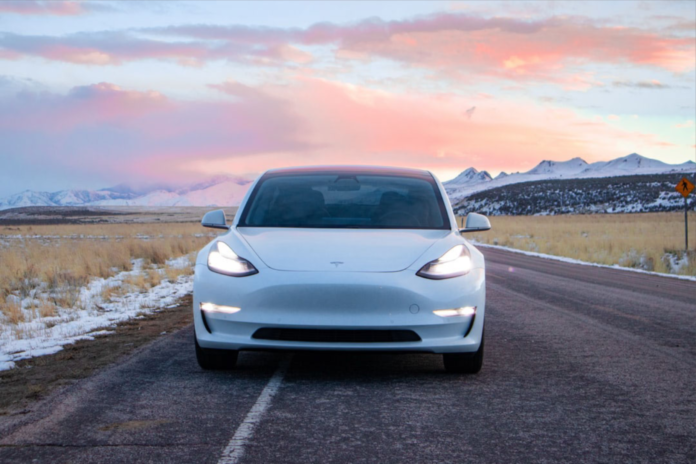Democrat Governor Tim Walz is pushing a new “Clean Car MN” initiative on Minnesota, that will subsidize luxury vehicles at the expense of ordinary Minnesotans. This amounts to nothing more than a reckless handout to the urban rich that will have absolutely no environmental impact.
Via regulation from the Minnesota Pollution Control Agency, set to be completed in 2020, Walz unilaterally moved to adopt California’s fuel-efficiency rules for Minnesota. The regulation would mandate that automakers sell a certain percent of electric vehicles as part of their overall vehicle sales, and mandate that the average fuel efficiency of all vehicles sold by a particular automaker meets a higher fuel-efficiency standard.
Part of a broader political battle
Walz’s move makes Minnesota join 13 other states who have adopted similar standards, and Minnesota has already joined nearly two dozen states with liberal attorneys general—led by California—in challenging the Trump administration’s reduction of federal fuel-efficiency regulations put in place by the Obama administration. The federal government has the power to set a uniform fuel-efficiency standard, but these states seek the power to set their own.
Specifically, national CAFE (corporate average fuel economy) standards require automakers’ average vehicle sold to have a certain fuel efficiency. This has led to all sorts of distortions. For example, automakers in the United States have historically sold high-margin, American-made SUVs and trucks, and met their CAFE requirements by producing less-popular but more fuel-efficient vehicles in Mexico—often at a loss.
The Obama administration put in place impossible-to-meet CAFE standards, that would only take effect once Obama left office: Average miles per gallon of vehicles sold was to reach 54.5 by 2025. The Trump administration revised this target down to a more-realistic 37 mpg by 2025 (still an improvement), but California—pushing to hold onto its state regulatory power that it was granted long-ago to deal with smog in Los Angeles—is pushing for a state target of 50 mpg by 2025.
By seeking to operate outside of federal regulations, California—because of its size—would in effect require out-of-state voters to subsidize its electric vehicle (EV) mandate.
An added twist is that, just in case it loses its court battle with the federal government, California has gotten several large automakers (including Ford, Honda, Volkswagen, and BMW) to “voluntarily” agree to California’s electric vehicle targets and 50 mpg standard. Why did the automakers get on board? Already, the automakers are being forced to sell a certain amount of EVs in China and Europe. They hope to maintain EV subsidies in America, so they can create greater economies of scale for EV production, and cut their losses from producing EVs. That’s the dirty secret about EVs. They lose money for the automakers, and still come with a hefty price-tag. And to the Department of Justice, this deal between automakers and California obviously triggers antitrust and collusion concerns.
Back to Minnesota
Back on the home front, Minnesota’s rules work in a similar matter. In general, that will lead automakers to charge more for gas-powered vehicles, even those that are relatively efficient, and charge less than they normally would for electric cars—only by making gas-powered cars cost more will automakers be able to meet Walz’s centrally-planned target.
The Washington Post tries to make the issue about consumer choice: “Walz said Minnesotans now have a choice of about 19 hybrid or electric vehicles, compared with about 43 in 13 other states that have adopted similar low- and zero emission vehicle standards,” says the Post.
Actually, automakers only sell more EVs in other states because they are forced to. The roughly two dozen EV or hybrid vehicles referred to by the governor aren’t sold in Minnesota because Minnesotans wouldn’t buy them at a price even remotely close to where the automakers could make a profit. Only when automakers are forced to adhere to a mandate, raising the price of gas-powered vehicles, can the prices of these other EVs and hybrids be lowered enough to tempt consumers.
That brings us to the other problem. The people buying EVs, like Teslas, are rich people. EVs are a “plaything of the wealthy,” in the words of one report. That’s why government subsidies for EVs go overwhelmingly to rich people. The average EV costs over $55,000, while the average car costs about $35,000.
Finally, EVs won’t make a dent in overall CO2 emissions. EVs aren’t that great for the environment, because of the materials used in their batteries, and because CO2 is often burned to generate the electricity that powers EVs. True, EVs often do burn less CO2 than gas cars, but fuel-efficient gasoline vehicles can do just as well as electric cars, even though EVs are much more heavily subsidized. And if the EV is running on coal powered electricity, its pollution can be worse.
By the way, if electricity is clean in various parts of the country, that’s because it is being fueled by natural gas—thanks to “fracking”—which has replaced coal, not renewables. In fact, many states that use a lot of renewables like California also burn coal instead of gas, and have overall dirtier emissions as a result.
In other words, Walz’s plan has nothing to do with math, and everything to do with an act of faith and public sacrifice on the alter of environmentalism. If that weren’t bad enough, that sacrifice will be paid by a tax on the poor and working class in Minnesota, who can’t afford a luxury electric car. Meanwhile, Liberals in suburbs like Kenwood and Edina will drive around full of self-righteousness, as they “save the planet” in their $60,000 cars.
___________________________________
Donations to Alpha News are 100% tax-deductible. Help us create more content and reach more people











